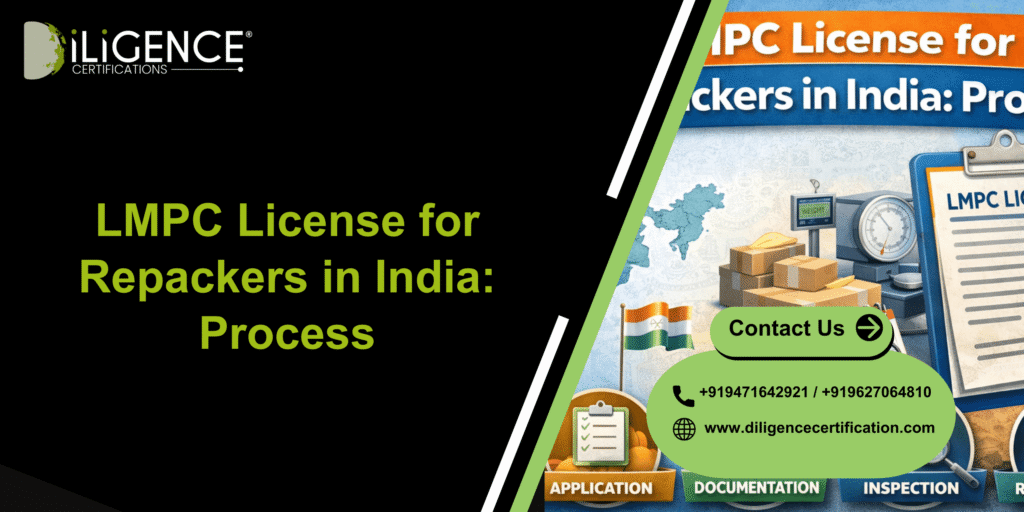- BIS requirements for toothpaste ensure product safety, quality, and consumer trust in India.
- Diligence Certifications simplifies IS 6356:2021 compliance and ISI standards for toothpaste.
- From formulation to packaging, understanding BIS requirements for toothpaste is critical for market approval.
Introduction:
A toothpaste manufacturer from Ahmedabad rang up Diligence Certifications in a panic last year. His brand, growing strongly in Gujarat, faced sudden rejection at a national retailer’s warehouse because he couldn’t show a BIS certificate for toothpaste.
The buyer refused to accept a single carton until proof of ISI Mark Certification arrived. This is not a rare case — many small and mid-sized toothpaste brands in India get caught off-guard by the BIS requirements for toothpaste, especially after IS 6356:2021 came into effect.
In the health and FMCG sector, this oversight can ruin months of marketing investment overnight. That is why understanding BIS requirements for toothpaste has become non-negotiable for any player in this market.
What is BIS Certification for Toothpaste?
Think of the Bureau of Indian Standards as India’s quality watchdog. Toothpaste, being a cosmetic as per the Drugs and Cosmetics Act, would have some formulations meeting IS 6356:2021 standard.
BIS certification means that toothpaste products comply with a very stringent set of requirements concerning various aspects of safety, fluoride, heavy metals, abrading agents, microbiological quality, hygiene of the packaging, and others. Essentially, these BIS standards for toothpaste guarantee that your toothpaste will not harm a consumer or infringe upon safety norms. The ISI mark is then put on the product, which means the product has complied with these Indian Standards and has been tested in laboratories that the BIS standards for toothpaste have approved.
If you are into selling toothpaste in India, then getting it BIS Certification in India is like a shield that would prevent your product from being banned or recalled in the market, or having you end up in court with a lawsuit filed against you.
Why are BIS Requirements for Toothpaste Important?
In today’s Indian market, trust in a toothpaste brand is non-negotiable. Consumers are now much more concerned about dental care products’ fluoride levels, harmful additives, and bacterial contamination.
BIS certification for toothpaste is intended to close these specific gaps. It ensures:
- Consumer protection from unsafe ingredients
- Consistency in quality and taste
- Compliance with Indian law
- Fewer product recalls and import/export headaches
One brand from Maharashtra, for example, told us they saw a 22% sales jump after adding the ISI mark to their toothpaste cartons — simply because the certification boosted trust among pharmacists and supermarkets.
BIS requirements for toothpaste guarantee safe, legal, and market-approved oral care products in India.
Which BIS Standards For Toothpaste?
The primary standard is IS 6356:2021, which covers toothpaste quality and safety requirements. This standard lays out:
- Acceptable fluoride content
- Maximum limits on heavy metals (lead, arsenic)
- Permissible abrasive content
- Microbiological safety
- Packaging and labeling rules
In addition, CDSCO registration under the Drugs License and Cosmetics License Rules may apply if your toothpaste contains active pharmaceutical ingredients.
What is IS 6356:2021?
The Indian Standard that establishes the safety and quality requirements for toothpaste is IS 6356:2021. This standard, which was released by the Bureau of Indian Standards (BIS), guarantees that all toothpaste sold in India satisfies stringent requirements for:
- Ingredient safety (no harmful or banned substances)
- Fluoride content limits to prevent dental fluorosis
- Microbiological safety, so there are no harmful bacteria in the paste
- Heavy metal limits (like lead, arsenic, mercury) to protect long-term health
- Sensory qualities — including taste, color, and texture
- Correct packaging and labeling to guide consumers
Simply put, IS 6356:2021 is the guideline that guarantees your toothpaste cleans teeth safely, effectively, and without harm. It is updated frequently to reflect current research, ensuring that Indian consumers receive a product that is both aesthetically pleasing and suitable for their medical needs.
Types of Toothpaste under BIS Scope
BIS requirements for toothpaste do not limit its regulation to “white toothpaste” alone. Any of the following categories must comply:
- Fluoridated toothpaste
- Herbal toothpaste with fluoride
- Children’s toothpaste
- Charcoal-based toothpaste
- Whitening toothpaste
- Medicinal toothpaste
Each of these variants requires separate testing under IS 6356:2021 to verify safe ingredients and suitable claims.
Eligibility and Validity of BIS Certificate for Toothpaste
Eligibility: Any manufacturer — domestic or foreign — who wants to sell toothpaste in the Indian market must comply with BIS.
Validity: The BIS license for toothpaste is generally valid for 2 years, with a renewal option after passing surveillance audits. If there are major formula or packaging changes, BIS may demand fresh testing.
Only BIS-certified toothpaste can legally use the ISI mark.
Documents Required for BIS Certification of Toothpaste

Clients usually need to collect these documents:
- Manufacturing license
- GMP or ISO certificates
- Ingredient formulations
- Product labels and claims
- Testing protocols
- Authorisation letter (if applying through Diligence Certifications)
- CDSCO Registration details (if applicable)
Our team at Diligence Certifications helps you review these carefully to avoid missing approvals or getting rejected.
How to Get BIS Certification for Toothpaste?
Here’s how the compliance journey works, step by step:
- Application – submit online via BIS portal with product details
- Sample Testing – send samples to BIS-recognised labs
- Factory Audit – BIS inspectors visit your site
- Grant of License – after passing all tests, you get the ISI mark
- Surveillance – ongoing checks to ensure continuous compliance
In our experience at Diligence Certifications, managing the BIS certificate for toothpaste inspector’s queries and sample submissions is the toughest part — we make that easy with a structured checklist and direct lab tie-ups.
Benefits of BIS Certification for Toothpaste
For most brands, BIS certification offers these real-world advantages:
- Smooth market entry without customs or warehouse rejection
- Higher consumer trust in health-sensitive products
- Protection against counterfeiting
- Eligibility for large retail and government contracts
- Competitive advantage over unlicensed players
One of our Delhi clients proudly displayed their ISI mark on 5 lakh toothpaste packs and saw distributors treat their brand as “premium” almost overnight.
BIS requirements for toothpaste build safety, credibility, and market power.
Challenges in BIS Certification for Toothpaste
It is not all smooth sailing. Common challenges include:
- Complex ingredient verification
- Coordinating third-party lab tests
- Language issues in BIS submissions
- Sample shipment delays
- Navigating CDSCO plus BIS rules if your formula has actives
That is precisely where Diligence Certifications acts as your compliance partner — saving you months of guesswork.
BIS Requirements for Toothpaste: Domestic Manufacturers and Foreign Manufacturers
Domestic Manufacturers
- Must manufacture toothpaste as per IS 6356:2021 standards
- Should register with the Bureau of Indian Standards under the Compulsory Registration Scheme (CRS)
- Submit a detailed application with ingredient composition, labeling, and shelf-life data
- Provide product samples for lab testing at BIS-recognised laboratories
- Complete a mandatory factory audit to verify hygiene, GMP, and production capabilities
- Rectify any non-conformities highlighted during testing or inspection
- Obtain an ISI mark license after BIS approval
- Renew certification every two years with periodic surveillance audits
- Maintain compliance with packaging, fluoride levels, and microbiological parameters

Foreign Manufacturers
- Appoint an Indian Authorised Representative (AIR) registered with BIS
- Apply for BIS registration under the Foreign Manufacturer Certification Scheme (BIS FMCS)
- Submit detailed formulations, pack artwork, and ingredient declarations in BIS-specified formats
- Ship samples to India for testing at BIS-approved labs, despite existing overseas certificates
- Prepare for a factory audit by BIS officers traveling from India
- Address any deficiencies in product or documentation before approval
- Get an ISI Mark license after demonstrating compliance with IS 6356:2021
- Renew certification every two years after a fresh surveillance audit
- Adhere to Indian legal norms on labeling, fluoride content, and heavy metals

Cost of BIS Certification for Toothpaste
Most toothpaste manufacturers budget around ₹1–1.5 lakhs for testing, BIS certificate for toothpaste fees, and document processing. If the product fails on any microbiological or fluoride standard, you may need retesting, which can add ₹20,000–30,000 extra.
We always suggest clients plan a buffer because lab retests happen quite often due to tiny label or sample mistakes.
Working with Diligence Certifications means fewer retests — our team double-checks everything before samples go to the lab.
Conclusion
In today’s Indian market, toothpaste is far more than just a dental product — it is a matter of public health, consumer trust, and brand identity. The Bureau of Indian Standards has rightly tightened its framework through IS 6356:2021, ensuring manufacturers, whether domestic or foreign, do not compromise on product safety, fluoride levels, or contamination control.
If you are a domestic manufacturer, the BIS certification is your passport to building confidence and expanding market share across the country, including institutional and government orders. If you are a foreign toothpaste brand, BIS requirements are your entry ticket to one of the world’s most competitive oral care markets, backed by millions of health-conscious consumers.
In practice, many manufacturers struggle with documentation gaps, lab non-compliance, or procedural delays. That’s exactly where expert consultants like Diligence Certifications come in — helping you navigate every stage, from application to testing to BIS audits. We have seen brands save crores in potential product recalls simply because they had a proactive BIS strategy.
When you think about the future, toothpaste is only going to see stricter regulation: sustainability factors, eco-friendly packaging, and advanced antibacterial formulations will come under the BIS lens in the coming years. Getting your certification correct today is an investment in that future.
BIS requirements for toothpaste are no longer a formality; they are your brand’s backbone of trust. If you are serious about manufacturing or importing toothpaste for the Indian market, you cannot afford to delay BIS approval.
Frequently Asked Questions
Is BIS certification compulsory for toothpaste in India?
Yes, it is mandatory under IS 6356:2021 for any toothpaste sold in India.
Can herbal toothpaste skip BIS registration?
No, herbal or natural toothpastes with fluoride or other activities still need BIS compliance.
How long does BIS certification take for toothpaste?
Normally 4–6 weeks, depending on lab schedules and inspection slots.
What documents are required?
You’ll need factory registration, test reports, formulation details, and packaging labels to apply for BIS.
What happens if I sell toothpaste without BIS approval?
You risk product seizure, legal penalties, and even blacklisting in certain tenders.
Can a foreign toothpaste brand get BIS certification?
Yes, but through an Indian authorised representative with local liaison.
Is BIS valid permanently?
No, you must renew it every 2 years after surveillance.
Are animal-tested pastes allowed under BIS?
As per IS 6356, testing rules apply, but Indian ethical norms must also be respected.
What about whitening toothpaste with activated charcoal?
It also needs to pass IS 6356 fluoride and heavy metal limits before sale.
Who can help with BIS for toothpaste?
An expert like Diligence Certifications can handle end-to-end compliance to avoid costly mistakes.








 BIS Certification
BIS Certification
 CDSCO
CDSCO
 CPCB
CPCB
 LMPC
LMPC
 WPC Approval
WPC Approval
 Global Approvals
Global Approvals
 TEC
TEC
 ARAI
ARAI
 BEE
BEE
 ISO Certification
ISO Certification
 Drone Registration
Drone Registration
 NOC For Steel
NOC For Steel



















 Business Registration
Business Registration














 Legal Services
Legal Services
 Trademark Registration
Trademark Registration
 Copyright Registration
Copyright Registration
 Patent Registration
Patent Registration















































